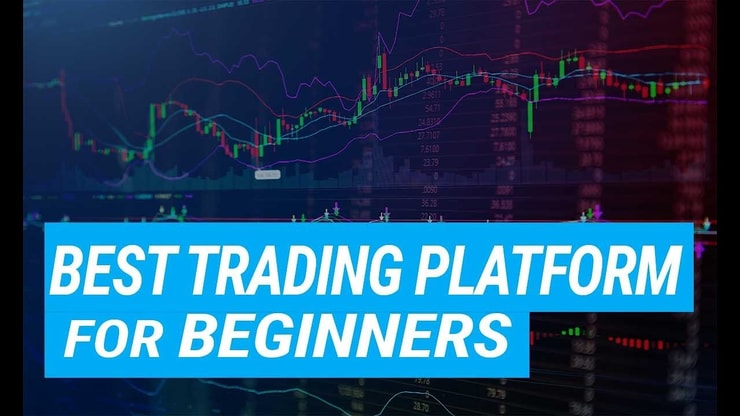Construction Stocks Canada refers to shares in companies involved in the building and development sector in Canada. These stocks offer traders a way to capitalize on Canada’s bustling construction industry, encompassing everything from residential homes to commercial infrastructure. As someone who has been trading patterns for years, I can tell you that these stocks add another layer of opportunity to your portfolio.
You should read this article because it dives deep into the intricacies of investing in Canadian construction stocks, offering actionable insights backed by years of trading experience.
I’ll answer the following questions:
- What are construction stocks in Canada?
- How is the Canadian construction industry structured?
- What factors should you consider when investing in construction stocks?
- What are some top construction stocks in Canada for 2024?
- How can you buy construction stocks in Canada?
- What are the risks associated with investing in construction stocks?
- Are there any construction ETFs available for investors in Canada?
- How do construction stocks fare compared to other sectors in Canada?
Still with me? Good. Now let’s dig into the details.
Table of Contents
- 1 What Are Construction Stocks?
- 2 Understanding the Canadian Construction Industry
- 3 Top Construction Stocks in Canada for 2024
- 4 Investing in Canadian Construction Companies
- 5 Key Takeaways
- 6 FAQs About Canadian Construction Stocks
- 6.1 How Do Construction Stocks Fare Compared to Other Sectors in Canada?
- 6.2 What Are the Risks Associated With Investing in Construction Stocks?
- 6.3 Are There Any Construction ETFs Available for Investors in Canada?
- 6.4 What Content Should I Know About Canadian Stock Exchanges?
- 6.5 What Plans and Equipment Do Residents Need?
What Are Construction Stocks?
Construction stocks are shares in companies involved in construction work, ranging from residential building to infrastructure projects. These businesses could be contractors, engineering firms, or providers of construction services and tools. They form an integral part of both the construction industry and the stock market. You’ve heard me say it before, and I’ll say it again: know your stock and its sector. In my years of teaching trading, I’ve seen too many new traders dive into stocks without understanding the industry.
Investing in construction stocks is like any other form of investing; you’re buying a piece of the company. What sets it apart is its ties to both economic development and residential growth, making it a unique sector in any investment portfolio. Just like how you’d research a penny stock before trading, understanding the intricacies of the construction industry can make or break your investing decisions.
You’ve heard me say it before: know your stock and its sector. But let’s not forget, construction stocks aren’t just about buildings and infrastructure. They can also be about specialized services like engineering, design, and even tech solutions for construction management. This versatility can offer you multiple avenues for investment within the same sector. If you’re looking to diversify your understanding of stock types, don’t miss this guide on different types of stocks.
Understanding the Canadian Construction Industry

The Canadian construction industry is like a multilayered cake, okay? You’ve got builders on one level, then offices, residential sites, and infrastructure projects on another. It’s not all hammer and nails; it involves complex financing, often with big banks providing the funds. The placement of money here varies—some go for long-term investments, hedging their bets on futures and mortgages, while others play the quick trades.
I can tell you from experience that you need to know what you’re doing before jumping in. You’ve got firms like SNC-Lavalin Group Inc. shaping the skyline in Toronto and other companies eyeing overseas expansion in countries like Australia and the United Kingdom. It’s not just about price and dividends; it’s also about understanding trade histories, market results, and the economic data that go along with it. Opinions are many, but credible advice can be scarce. Always cross-check your information, people.
Industry Valuation and Performance
The Canadian construction industry is more than just hammers and nails; it involves intricate engineering and design roles and has a substantial valuation in terms of market cap and revenue. Knowing a company’s financial standing is essential. I can’t tell you how many times people ignore financial ratios and dividend yields, which are vital in making informed decisions. Don’t ignore the numbers; they tell a story.
Management is another factor to consider when looking at construction companies in Canada. Who are the directors? How well do they manage projects and clients? Understanding these elements can provide an investor with greater confidence. With decades of trading and teaching experience, I can attest that management can drastically impact a stock’s performance.
Industry Trends
We’re talking about a dynamic sector here. Whether it’s green construction materials or the use of AI in site management, staying ahead of trends is crucial. Always look for companies willing to adapt and innovate. I’ve been teaching long enough to know that a company stuck in its ways isn’t going to grow your portfolio.
The industry also taps into other sectors like energy, water, and transportation. As a trader, these are facets you shouldn’t ignore when considering construction stocks. Understanding cross-sector dynamics can offer a broader range of investment opportunities. Don’t just tunnel-vision on the company name and stock ticker.
Top Construction Stocks in Canada for 2024
My top Canadian construction stock picks are:
- WSP Global (TSX: WSP)
- Stantec (TSX: STN)
- Badger Infrastructure Solutions (TSX: BDGI)
- Bird Construction (TSX: BDT)
- Doman Building Materials (TSX: DBM)
The choices here will vary depending on your portfolio needs. While dividends might lure some investors, others might focus on stock price and trading volumes. The Toronto Stock Exchange (TSX) is where you’ll find these gems, but remember, consult a full table of data and history before making any moves. Trust but verify, right?
Here are a few names to look at …
Before you send in your orders, take note: I have NO plans to trade these stocks unless they fit my preferred setups. This is only a watchlist.
The best traders watch more than they trade. That’s what I’m trying to model here. Pay attention to the work that goes in, not the picks that come out.
Sign up for my NO-COST weekly watchlist to get my latest picks!
More Breaking News
- Oracle’s $50B Cloud Expansion Plans Fuel Stock Surge
- GTM Stock Gains: Strategic Moves Pave Way for Future Growth
- QuantumScape Launches Eagle Line for Solid-State Battery Pilot Production
- Roblox Stock Surges After Strong Financial Performance Reports
WSP Global (TSX: WSP)
My first Canadian construction stock pick is WSP Global (TSX: WSP).
WSP Global is no small fry; we’re talking big projects with a track record that demands respect. Their offerings in engineering services are like the Swiss Army knife for builders — versatile and reliable.
Stantec (TSX: STN)
My second Canadian construction stock pick is Stantec (TSX: STN).
Stantec? Think design and consulting services for builders. This company knows what it’s doing and has been consistently maintaining its dividend levels. Based out of Edmonton but with a hefty presence in countries outside Canada, their reach is vast. The details and results speak for themselves.
Badger Infrastructure Solutions (TSX: BDGI)
My third Canadian construction stock pick is Badger Infrastructure Solutions (TSX: BDGI).
BDGI is a cornerstone in the Canadian construction industry, specifically in utility services. When looking at their offerings, they have their fingers in a lot of pies — from excavation to, well, infrastructure solutions.
Bird Construction (TSX: BDT)
My fourth Canadian construction stock pick is Bird Construction (TSX: BDT).
Bird is an interesting play. They’ve got a portfolio that’s diverse and crosses multiple sectors. Their logo is recognizable in the Canadian construction space, and for good reason. You’ll see them in both commercial and residential sectors, and their level of expertise is top-notch.
Doman Building Materials (TSX: DBM)
My fifth Canadian construction stock pick is Doman Building Materials (TSX: DBM).
DBM is another one with significant offerings, focusing on the builders and contractors. Specializing in building products, they also have a strong standing on the TSX. The company’s features make it accessible for investors of all levels.
Investing in Canadian Construction Companies
You want to invest in construction companies, but what’s the game plan? Are you looking for quick trades, or are you playing the long game? Both have their pros and cons. Long-term portfolios will often include a blend of stocks, sometimes even adding construction to diversify. Banks are often involved in the financing, especially in the larger projects.
From my years of trading, I’d say tread carefully, especially if you’re new to this. Look into IPOs for upcoming opportunities and examine the financials—ratios, money involved, the works. Remember, investing isn’t a one-size-fits-all glove. Your friend’s needs won’t necessarily align with yours. Always perform your own due diligence and tailor your investment decisions to your financial goals.
If you’re considering long-term investment, don’t overlook the dividend aspect. Some construction companies offer decent dividends, providing you with a steady income stream. This can be a game-changer for those who are not just looking for capital appreciation but also a regular payout. If dividends pique your interest, here’s a guide on penny stocks that pay dividends.
How To Buy Construction Stocks
It’s simpler than you think but requires due diligence. You can buy these stocks through various stock exchanges, either by using an online trading platform or through your bank. Platforms offer different tools and options, and it’s essential to choose one that fits your investment goals. Even in my penny stock trading, the platform makes all the difference.
When it comes to trading platforms, StocksToTrade is first on my list. It’s a powerful trading platform that integrates with most major brokers. I helped to design it, which means it has all the trading indicators, news sources, and stock screening capabilities that traders like me look for in a platform. All my ideas on positions to take come from this firsthand research.
I use StocksToTrade to scan for news, tweets, earning reports, and more — all covered in its powerful news scanner. It has the trading indicators, dynamic charts, and stock screening capabilities that traders like me look for in a platform. It also has a selection of add-on alerts services, so you can stay ahead of the curve.
Grab your 14-day StocksToTrade trial today — it’s only $7!
Factors To Consider When Investing
When investing in construction stocks, factors like market volatility, interest rates, and company valuation are pivotal. Portfolio diversification is key. I’ve taught hundreds of students, and those who spread their risk are the ones who often see better returns. In construction, companies can be vulnerable to economic shifts, so understanding the business cycle is crucial.
Market volatility and interest rates are crucial, but what about growth prospects? Some construction stocks are also classified as growth stocks, meaning they have the potential for significant capital appreciation. However, these stocks can be volatile and may not offer dividends. It’s essential to weigh the pros and cons based on your investment strategy. For more insights into the complexities of growth stocks, check out this guide on growth stock blues.
Key Takeaways

We’ve covered a lot. Construction stocks offer a robust and dynamic sector for investment in Canada. They’re deeply linked with economic and residential development. A diverse portfolio, which includes a variety of sectors, can offer you the best opportunities. Remember, my years in the trading world back this up.
Trading isn’t rocket science. It’s a skill you build and work on like any other. Trading has changed my life, and I think this way of life should be open to more people…
I’ve built my Trading Challenge to pass on the things I had to learn for myself. It’s the kind of community that I wish I had when I was starting out.
We don’t accept everyone. If you’re up for the challenge — I want to hear from you.
Apply to the Trading Challenge here.
Trading is a battlefield. The more knowledge you have, the better prepared you’ll be.
What construction stocks are on your watchlist? Let me know in the comments — I love hearing from my readers!
FAQs About Canadian Construction Stocks
How Do Construction Stocks Fare Compared to Other Sectors in Canada?
Generally, construction stocks show moderate to high volatility, which means there’s both risk and opportunity involved. As with trading in any sector, due diligence is essential. Remember, I’ve made a living off trading by always keeping my risk tight and cutting losses quickly.
What Are the Risks Associated With Investing in Construction Stocks?
Risks include economic downturns, policy changes, and interest rate hikes, among others. Understand what you’re getting into before making any decisions. My teaching philosophy has always been about making informed choices.
Are There Any Construction ETFs Available for Investors in Canada?
Yes, construction ETFs provide an alternative for those looking to diversify within this sector. These funds encompass a range of construction stocks, offering you a safer bet if you’re not sure which individual company to invest in. Always remember, no matter what you’re investing in, do your homework first.
What Content Should I Know About Canadian Stock Exchanges?
Before opening an account to trade on Canadian stock exchanges, it’s crucial to familiarize yourself with the content available about the markets, trading rules, and the stocks listed. Always read the disclaimer on any platform you choose to ensure you understand the risks involved.
What Plans and Equipment Do Residents Need?
Canadian residents interested in trading should have a well-thought-out trading plan. Your plans should cover everything from the types of stocks you aim to invest in, the investment goals, to the rights you have as an investor. Additionally, make sure you have the necessary equipment, like a reliable computer and internet connection, to execute your trades smoothly.





Leave a reply